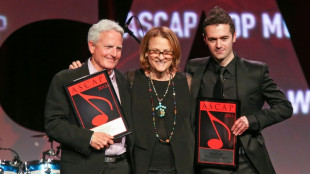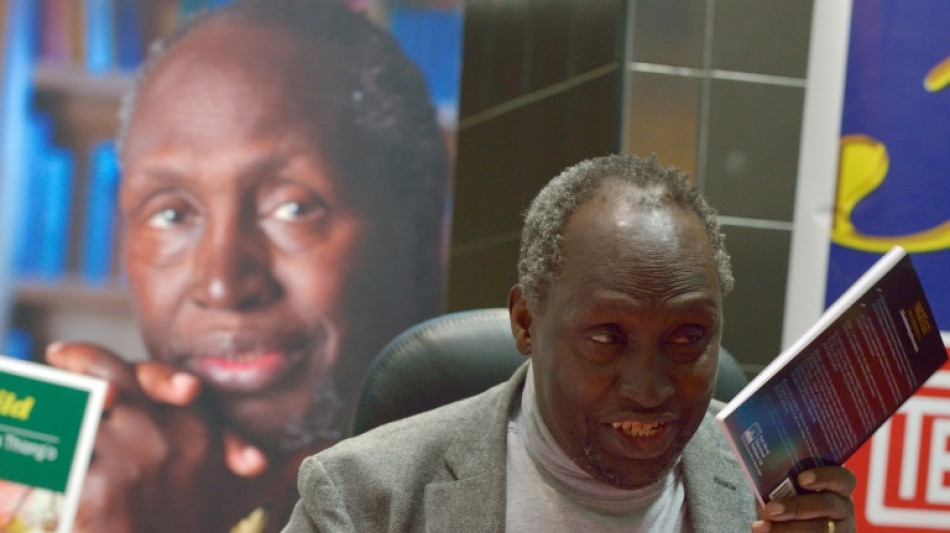
-
 Denmark king visits Greenland
Denmark king visits Greenland
-
Uncut gems: Indian startups embrace AI despite job fears
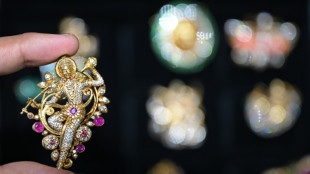
-
 Ukraine war talks to resume in Geneva as US signals progress
Ukraine war talks to resume in Geneva as US signals progress
-
Harrop eyes 'Skimo' gold in sport's Olympic debut

-
 Junk to high-tech: India bets on e-waste for critical minerals
Junk to high-tech: India bets on e-waste for critical minerals
-
Struggling farmers find hope in India co-operative

-
 How Latin American countries are responding to Cuba's oil crisis
How Latin American countries are responding to Cuba's oil crisis
-
Philippines VP Sara Duterte announces 2028 presidential run

-
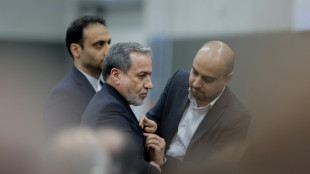 Asian stocks up, oil market cautious
Asian stocks up, oil market cautious
-
Peru Congress impeaches interim president after four months in office
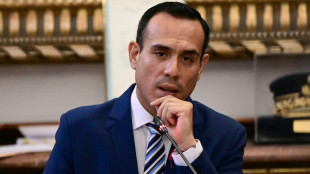
-
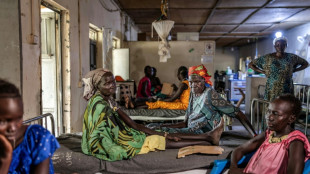 Hungry, wounded, orphaned: South Sudan's children trapped in new conflict
Hungry, wounded, orphaned: South Sudan's children trapped in new conflict
-
UK manufacturers struggle under sky-high energy bills

-
 New tech and AI set to take athlete data business to next level
New tech and AI set to take athlete data business to next level
-
'Pay or he dies', families told as more Egyptians risk Mediterranean crossing

-
 Indonesia coal plant closure U-turn sows energy transition doubts
Indonesia coal plant closure U-turn sows energy transition doubts
-
Ukraine war talks to resume in Geneva with no sign of progress

-
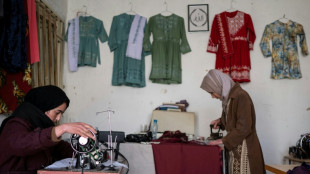 Afghan woman's boutique brightens Bamiyan
Afghan woman's boutique brightens Bamiyan
-
Zuckerberg to testify in landmark social media addiction trial

-
 US towns resist Trump plans to jail immigrants in warehouses
US towns resist Trump plans to jail immigrants in warehouses
-
Ten skiers missing in California avalanche

-
 Guatemalan security forces deploy to gang-plagued capital
Guatemalan security forces deploy to gang-plagued capital
-
US to discuss base with Mauritius as UK returns islands

-
 Mexico prepares for possible drone threats during the World Cup
Mexico prepares for possible drone threats during the World Cup
-
SMX Turns Gold Into a Trackable Asset Just as Prices Reached Record Levels in Early 2026

-
 Bowlers, selectors under fire after Australia's T20 World Cup exit
Bowlers, selectors under fire after Australia's T20 World Cup exit
-
Racism allegations overshadow Real Madrid victory as PSG win in Champions League

-
 Japan's Nakai shines on ice as Frostad soars to Olympic big air gold
Japan's Nakai shines on ice as Frostad soars to Olympic big air gold
-
Japanese teen Nakai leads Sakamoto after Olympic women's short programme

-
 Sweden to face USA in Olympic men's ice hockey quarter-finals
Sweden to face USA in Olympic men's ice hockey quarter-finals
-
Alexander-Arnold hits out at 'disgusting' alleged Vinicius racism

-
 Bird flu ravaging Antarctic wildlife, scientist warns
Bird flu ravaging Antarctic wildlife, scientist warns
-
Nakai leads Sakamoto in Olympics after women's short programme

-
 Guirassy guides Dortmund past Atalanta in Champions League play-offs
Guirassy guides Dortmund past Atalanta in Champions League play-offs
-
Vinicius stunner helps Real Madrid edge Benfica in play-off marred by alleged racism

-
 Doue inspires PSG to comeback Champions League win in Monaco
Doue inspires PSG to comeback Champions League win in Monaco
-
'Climate cult' hurts Europe's economy, US energy secretary tells AFP

-
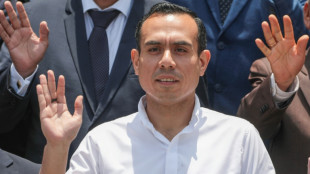 Peru's presidential musical chairs
Peru's presidential musical chairs
-
France arrests nine over far-right activist's killing

-
 France arrests seven over far-right activist's killing
France arrests seven over far-right activist's killing
-
Frostad dethrones Ruud in Olympic freeski big air thriller

-
 Galatasaray thrash 10-man Juve in Champions League play-off 1st leg
Galatasaray thrash 10-man Juve in Champions League play-off 1st leg
-
Woods return timeline uncertain, but won't rule out Masters

-
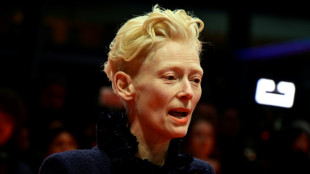 Dozens of film figures condemn Berlin Film Festival 'silence' on Gaza
Dozens of film figures condemn Berlin Film Festival 'silence' on Gaza
-
Iran, Ukraine talks spark diplomatic merry-go-round in Geneva

-
 Canada launches huge defence plan to curb reliance on US
Canada launches huge defence plan to curb reliance on US
-
US says will match alleged Chinese low-yield nuclear tests

-
 Alcaraz battles into second round of Qatar Open
Alcaraz battles into second round of Qatar Open
-
Russians, Belarusians to compete under own flags at Paralympics: IPC tells AFP

-
 Bayer proposes class settlement for weedkiller cancer claims
Bayer proposes class settlement for weedkiller cancer claims
-
Gauff, Rybakina cruise into Dubai last 16


Kenya's Ngugi wa Thiong'o, champion of African expression
During his imprisonment, Kenyan author Ngugi wa Thiong'o decided he would never write in English again, a defiant move that helped put literature in African languages firmly on the map.
Ngugi died at the age of 87 on Wednesday, his daughter announced on Facebook.
"It is with a heavy heart that we announce the passing of our dad, Ngugi wa Thiong'o this Wednesday morning," wrote Wanjiku Wa Ngugi. "He lived a full life, fought a good fight."
Widely regarded as east Africa's most influential writer, Ngugi sought to forge a body of literature reflecting the land and people from which he came, and not follow in the footsteps of Western tradition.
"I believe so much in equality of languages. I am completely horrified by the hierarchy of languages," he told AFP in an interview in 2022 from California, where he lived in self-imposed exile.
His decision in the 1970s to abandon English in favour of his native Kikuyu, as well as Kenya's national language Swahili, was met with widespread incomprehension at first.
"We all thought he was mad... and brave at the same time," said Kenyan writer David Maillu. "We asked ourselves who would buy the books."
Yet the bold choice built his reputation and turned him into an African literary landmark.
The softly-spoken writer also lived a life as dramatic as his novels.
His criticism of post-colonial Kenya -- describing the violence of the political class and the newly rich as "the death of hopes, the death of dreams and the death of beauty" -- brought him into frequent conflict with the authorities.
- 'Decolonising the mind' -
Born James Ngugi into a large peasant family in Kenya's central Limuru region on January 5, 1938, he spent the first 25 years of his life in what was then a British settler colony.
His early works were heavily influenced by his country's battle against colonial rule and the brutal Mau Mau war of 1952-1960.
In his first collection of essays, "Homecoming", he described himself as a "stranger in his home country".
But his anger would later extend to the inequalities of post-colonial Kenyan society, incurring the wrath of the government.
In 1977, Ngugi and fellow writer Ngugi wa Mirii were jailed without charge after the staging of their play "Ngaahika Ndeenda" ("I Will Marry When I Want").
It was then that he decided to write his first novel in Kikuyu, "Devil on the Cross", which was published in 1980.
He had already abandoned his "English" name to become Ngugi wa Thiong'o.
"I wrote it on the only paper available to me, which was toilet paper," he told US radio broadcaster NPR.
Amnesty International named him a prisoner of conscience, before a global campaign secured his release from Kamiti Maximum Security Prison in December 1978.
As early as 1965, Ngugi's novel "The River Between" embarked on a critical examination of the role of Christianity in an African setting.
"If the white man's religion made you abandon a custom and then did not give you something else of equal value, you became lost," he wrote.
He went into self-imposed exile in 1982 after a ban on theatre groups in Kenya, moving first to Britain then to the United States.
In 1986, he published one of his best-known works, "Decolonising the Mind", a collection of essays about the role of language in forging national culture, history and identity.
- 'A Kenyan Tolstoy' -
When Ngugi returned home on a visit in 2004, he was mobbed by supporters at Nairobi's airport.
"I have come back with an open mind, an open heart and open arms," he declared.
Days later, he and his wife were attacked by armed men: she was raped and he was beaten up. It was not clear whether robbery was the sole motive or whether the assault was politically motivated.
Margaretta wa Gacheru, a sociologist and former student of Ngugi, described him as a national icon.
"To me he's like a Kenyan Tolstoy, in the sense of being a storyteller, in the sense of his love of the language and panoramic view of society, his description of the landscape of social relations, of class and class struggles," she said.
In addition to fiction, the father-of-three, who became a professor of comparative literature at the University of California Irvine, also published essays and three memoirs.
His most recent book was the genre-defying novel-in-verse "The Perfect Nine", which he translated into English in 2020.
It recounted the founding of the Kikuyu people, blending folklore and allegory.
From widening economic inequality to the lingering trauma of racism, the issues raised in the play still persist in Kenya and beyond, a fact not lost on its creator.
"I am an activist, I want to see change," Ngugi told AFP.
"I hope we can continue striving for that world. We cannot give up."
O.M.Souza--AMWN

